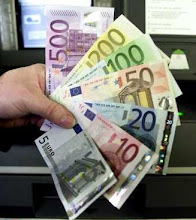The European Community (also referred to as the European Economic Community) has as its task the establishment of a common market and the progressive approximation of the economic policies of Member States. The term common market has been defined as an area, which consists of two or more Member States that abolish tariffs and other trade barriers in their mutual trade, set-up a Common External Tariff with third non-EU countries and apply the principle of the free movement of the sources of production (goods, labor, capitals) within the territory of that area.
One of the fundamental principles of the European Union is the free movement of goods between Member States. Thus, Member States are prohibited from imposing any restriction on imports or exports might hinder the free movement unless EC Law allows it. The European Union's Institutions through their instruments and law regulations strive to develop a free commercial network that does not suffer from custom duties, quantitative restrictions, or other charges having equivalent effect on imports or exports.
While Member States impose these kinds of restrictions in order to protect their own interests, the Court of Justice, through its decisions, acts to ensure that EC Laws are applied. Free movement of goods means in practice that no regulations or restrictions take place on Member States' borders as Articles 25, 28 & 29 (ex Articles 12, 30 & 34) prohibit them. Specifically, while European Union Members try to impose restrictions of non-pecuniary or pecuniary nature on borders, the Court of Justice acts a 'guard' by examining the legal basis and the purpose of the charge imposed.
Such restrictions or prohibitions shall not, however, constitute a means of arbitrary discrimination or a disguised restriction on trade between Member States. A Member State may have resource to Article 30 (ex Article 36) of the Treaty providing for the said exceptions to justify a measure having equivalent effect to quantitative restriction on imports or exports only if no other measure, less restrictive from the point of view of the free movement of goods, is capable of achieving the same objective.
Although the Treaty does not provide any exceptions, the Court has held in the past, that charges levied for tasks required by EC Law or charges for services rendered, do not breach Article 25 (ex Article 12). Regarding Articles 28 & 29 (ex Articles 30 & 36), the Court has introduced an exception called the Rule of Reason. It permits that restrictions can be imposed on goods as long as the Court of Justice allows them.
Concluding, the burden of proof that a measure is justified lies on the Member State's concern and on the Court of Justice's decision. In the case of industrial and commercial property rights litigation between private parties, the burden lies on the party seeking to oppose the importation or sale of the product concerned. Save measures relating to the protection of public policy or public morality, the adoption of other measures banning circulation of products and being able to jeopardize the free movement of goods lawfully marketed in another Member State, obliges the Member States concerned to exchange information with the Commission so that the latter to be enabled to manage such measures affecting the free movement of goods and settle satisfactorily for business and consumers any problems arising in connection with the internal market.
Resource: http://www.isnare.com/?aid=92681&ca=Finances

No comments:
Post a Comment